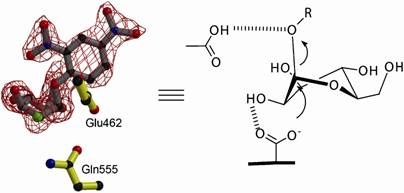Tripos to Build One of the Leading Informatics-Driven Drug Discovery Laboratories in Europe
- State-of-the-Art Chemical Synthesis Facilities to be Built in Cornwall, England -
Advertisement
ST. LOUIS, MO - April 25, 2002 - Responding to worldwide demand by pharmaceutical and biotechnology companies to accelerate timelines in the discovery of new drugs and therapeutics for the marketplace, the leading provider of drug discovery chemistry, software and enterprise informatics, Tripos, Inc., today announced it will significantly expand its Tripos Receptor Research facility and intends to considerably increase its workforce, in Bude, Cornwall, England. The new facility will more than double Tripos' current chemistry laboratories to 65,000 sq. ft., expand its personnel to 230 people, and is expected to be fully operational in early 2004.
This significant expansion will provide Tripos with the scientific staff and infrastructure to meet the growing demand for its informatics-driven discovery research products and services, including the recently announced four-year, $100 million agreement with pharmaceutical giant Pfizer to design, synthesize and purify high-quality, drug-like compounds to expand their high-throughput screening compound collection.
Tripos Receptor Research is a premiere scientific research facility that uses proprietary information-driven technologies to enhance the efficient design and synthesis of chemical compound libraries. These highly-focused LeadQuest® libraries are used around the world by leading drug discovery companies such as Pfizer, Lipha S.A. (the French subsidiary of Merck KgA), and others to identify promising new drug candidates. Tripos' drug discovery services include refinement (or optimization) processes for the compounds that demonstrate desired biological activity against the defined drug target. Known for problem solving, Tripos technologies rescue stalled discovery projects and navigate around patented chemical space to quickly move discovery projects forward for its customers.
Other news from the department business & finance
These products might interest you
Most read news
More news from our other portals
See the theme worlds for related content
Topic world Synthesis
Chemical synthesis is at the heart of modern chemistry and enables the targeted production of molecules with specific properties. By combining starting materials in defined reaction conditions, chemists can create a wide range of compounds, from simple molecules to complex active ingredients.

Topic world Synthesis
Chemical synthesis is at the heart of modern chemistry and enables the targeted production of molecules with specific properties. By combining starting materials in defined reaction conditions, chemists can create a wide range of compounds, from simple molecules to complex active ingredients.

































































